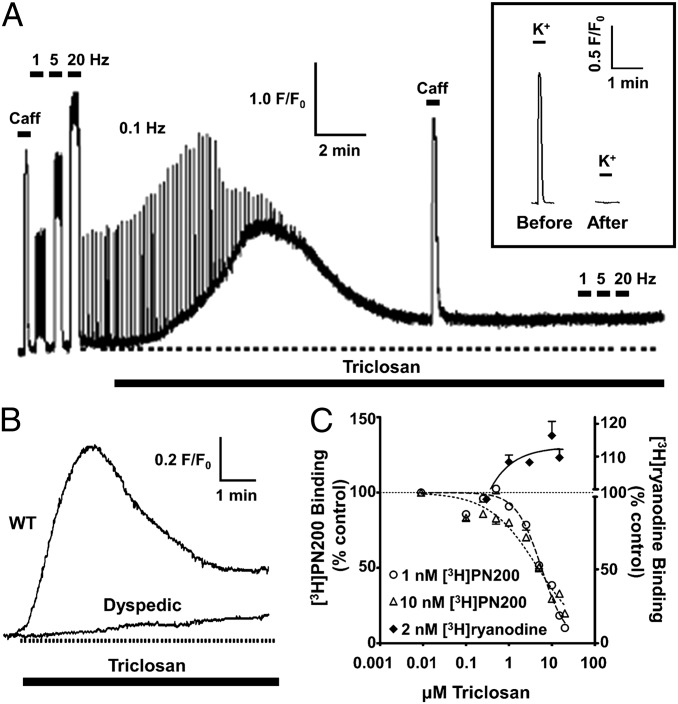Fig. 6.
TCS concomitantly affects both RyR and DHPR activity without depleting SR Ca2+ stores. (A) Mouse skeletal myotubes were loaded with the Ca2+ indicator Fluo-4 and electrically stimulated. Perfusion with 10 μM TCS resulted in a profound change in resting Ca2+, as well as a rapid diminution and abrogation of Ca2+ transients. Challenge with 20 mM caffeine (Caff) indicates SR Ca2+ stores were not depleted. (Inset) In separate experiments, after TCS caused failure of myotubes to respond to electrical stimuli, challenge with 60 mM KCl (K+) also failed to elicit ECC. (B) Dyspedic myotubes lacking RyR1 exhibited little change in cytosolic Ca2+ when exposed to TCS, implicating RyR1 as a molecular target of TCS. (C) Mouse skeletal muscle preparations were incubated with [3H]ryanodine or [3H]PN200 in the presence of TCS. TCS increased specific [3H]ryanodine binding with respect to control, whereas specific [3H]PN200 binding was inhibited noncompetitively across similar TCS concentrations.

